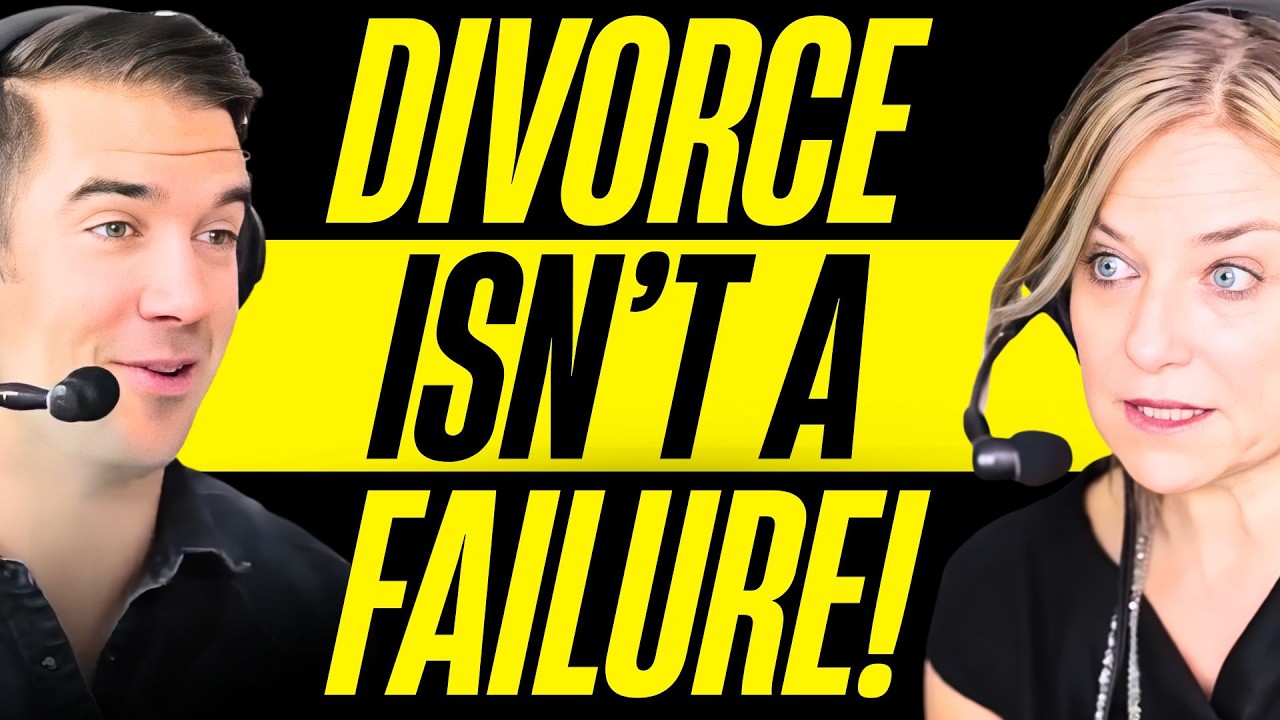- Emotional repercussions of divorce on individuals and families
- The role of communication in preventing misunderstandings
- The impact of societal perceptions on divorce rates
- Strategies for healing and moving forward after divorce
- How relationships evolve and change over time
Divorce is an experience that reaches deep into the emotional core of individuals, affecting families both immediately and in the long run. The emotional repercussions of divorce often manifest in various ways, leaving individuals to navigate a complex landscape of feelings like grief, anger, and relief. Post-divorce, people may feel isolated or misunderstood, as the discussion around divorce frequently glosses over these emotional facets. Many assume divorce is just a legal termination of a marriage, but it often entails profound personal and familial transformations that warrant discussion beyond the typical metrics of separation.
Human emotions are sophisticated and usually interconnected. The transition from being in a partnership to being single again carries psychological weights. Individuals may experience grief similar to mourning a lost loved one. Loss of companionship, shared dreams, and family unity can create a void that many struggle to fill. Children are particularly vulnerable, as they often do not fully grasp the complexities of adult relationships. Their emotional wellness is deeply tied to the dynamics between parents. They may experience confusion, sadness, or even guilt, leading to significant long-term implications if not addressed adequately.
Communication is a critical factor when delving into how divorce affects relationships. Often, poor or insufficient communication contributes to marital strife leading to divorce in the first place. Once the decision to separate has been made, effective communication is essential for mitigating conflict and ensuring a healthier transition. Sadly, many couples struggle with open dialogues, leading to misunderstandings. Clear expression of feelings, intentions, and boundaries can serve as a guide for navigating this complex adjustment period.
Contentious divorce proceedings can further exacerbate the difficulties inherent in the transition, making it harder for both partners to find common ground. Legal battles, financially draining disputes, and custody arrangements complicate relationships further. Creating a cooperative environment that prioritizes the children can alleviate some stress. Strategies such as mediation and counseling can foster better communication, allowing both parties to articulate their needs and grievances in a constructive manner.
Society’s perception of divorce plays a significant role in shaping individuals’ experiences. Divorce is often stigmatized, leading some to feel shame or inadequacy about their situation. This societal lens frequently paints divorce as a failure rather than a potential new beginning. Cultural narratives surrounding marriage create expectations, and when those expectations aren’t met, it can induce guilt. In some settings, especially conservative cultures, divorce may be viewed as taboo, pushing people to stay in relationships that may be detrimental to their wellbeing.
The effect of these societal perceptions can create a barrier to seeking help through counseling or support galleries. Many feel they should be able to handle their divorce alone, fearing judgment from peers. The truth remains that divorce is often a pragmatic decision made in the face of insurmountable issues. Acknowledging the reality of the situation, rather than succumbing to social pressures, fosters personal empowerment. This empowerment aids in moving past the detrimental aspects of living in a conflicted relationship.
As individuals and families begin to heal from the scars of divorce, understanding how to cope is vital. Healing is not an overnight process; it can take months or even years to fully realize. Personal strategies, such as journaling or engaging in creative pursuits, can facilitate emotional expression. Seeking professional support can help clarify feelings, opening new pathways to recovery. Grief counseling, in particular, can be essential for those experiencing emotional turmoil, guiding individuals toward healthy coping strategies.
Community support also plays a significant role in the journey toward recovery. Engaging in social groups or support networks provides a valuable space to share experiences and feelings. These groups can foster a sense of belonging, society often neglected after a divorce. It’s vital for individuals to understand they are not alone in their experiences. Finding others who understand the complexities of divorce can create a sense of empathy and connection, helping individuals move forward with renewed strength.
Relationships often evolve after a divorce in surprising ways. Either partners remain amicable co-parents or choose to never communicate again—each path presenting its unique challenges and opportunities. An evolving relationship with an ex-partner can sometimes lead to a newfound respect, particularly when prioritizing children’s wellbeing. Co-parenting arrangements that are developed collaboratively lead to healthier family dynamics, enabling children to thrive despite the circumstances.
In choosing how to approach relationships post-divorce, understanding personal needs and boundaries is essential. Clear intentions and mature interactions can pave the way for stronger future connections. With this increased understanding comes a greater chance for future partnerships to thrive, rooted in the lessons learned from the past.
Esther Perel emphasizes that the conversation around divorce must evolve to include the multifaceted emotional components associated with it. Most often, society tends to focus on the negative aspects of divorce without acknowledging the potential for personal growth and renewal. This reframing invites individuals to view divorce through a more constructive lens, encouraging them to recognize it as an opportunity for self-discovery and emotional resilience.
The truth about divorce encompasses numerous aspects rarely discussed openly. Emotional repercussions, the importance of communication, and societal perceptions significantly impact the experience of divorce. Each individual’s journey through the healing process is unique, shaped by interactions, choices, and support systems. Engaging in conversation about these components fosters a greater understanding of the challenges faced and paves the way for more meaningful discussions about relationships—whether they are in marriage or beyond.
Recognizing that relationships are not static but are subject to change can facilitate a healthier perspective on divorce. While it can be painful, it also offers opportunities to learn about oneself, improve emotional intelligence, and ultimately build better connections in the future. The experiences gained through divorce can contribute significantly to personal development, transforming challenges into strengths. Understanding the intricate dynamics at play allows individuals to approach the topic with compassion, foresight, and–most importantly–an authenticity that can inspire healing for themselves and for others.
*****
Source Description
🔔 Subscribe for more great content: https://www.youtube.com/lewishowes
▶️ Click to watch the full episode: https://youtu.be/VLhMOr0AH8I
World-renowned psychotherapist Esther Perel breaks down the biggest misunderstanding about divorce — that ending a marriage means the relationship “failed.” She explains why many long relationships are actually successes, how couples can consciously uncouple with integrity, and why redefining divorce helps adults and children heal with far less resentment. This conversation reshapes how we see love, endings, and the evolving ways modern families grow.
Follow Lewis!
Instagram: https://www.instagram.com/lewishowes/
Tiktok: https://www.tiktok.com/@lewis
Facebook: https://www.facebook.com/lewishowes/
Twitter: https://twitter.com/LewisHowes
💻 Website: http://lewishowes.com/
📲 For more Greatness text PODCAST to +1 (614) 350-3960
#greatness #inspiration #motivation

